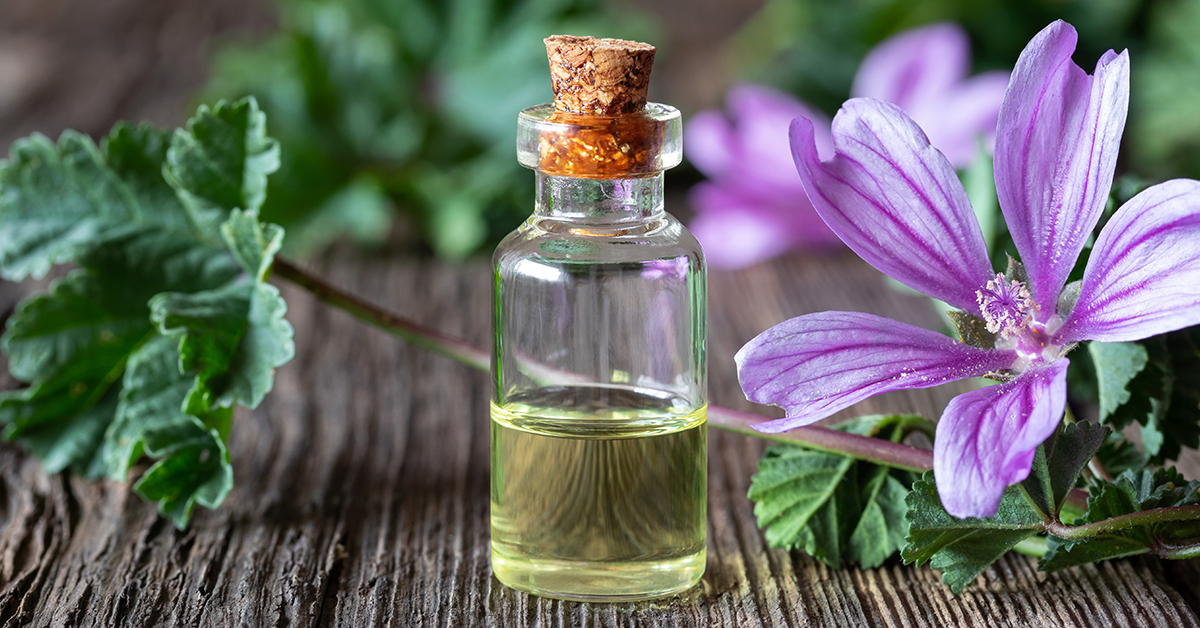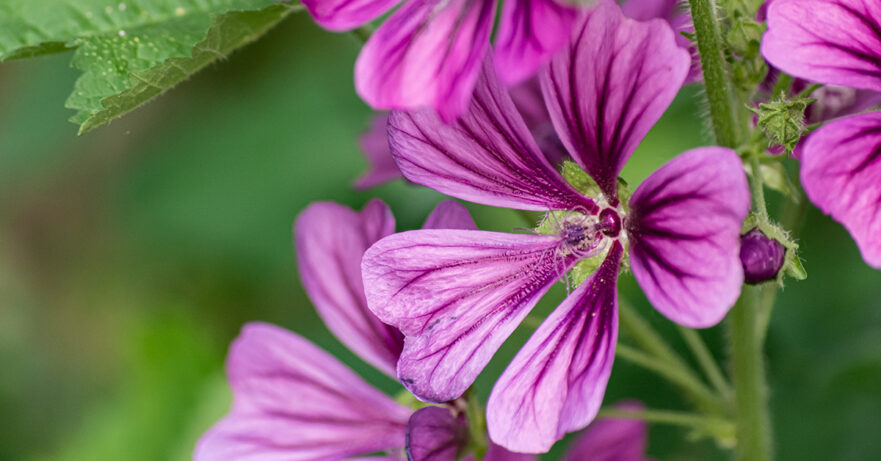In this monograph about common mallow:
📖 Introduction | 🌱 Botanical Description | 📜 Traditional Uses | 🔍 Phytochemistry | ✨ Applications and Uses | 🛡️ Safety Profile
📖 Introduction
Common Mallow (Malva sylvestris) is recognized for its soothing and protective properties, particularly for the skin and mucous membranes. Its gentle action has made it a favored herb in traditional medicine for various ailments.
| English Name | Common Mallow |
| Latin Name | Malva sylvestris |
| Parts Used | Leaves, flowers |
| Traditional Uses | Soothing sore throats, digestive aid, skin inflammation |
| Herbal Actions | Demulcent, emollient, anti-inflammatory |
🌱 Botanical Description
Scientific Classification
Malva sylvestris belongs to the Malvaceae family.
Physical Characteristics
This plant displays a bushy appearance with soft, heart-shaped leaves and distinctive pink-purple flowers.
Natural Habitat and Cultivation Details
Originating in Europe and now widespread, common mallow thrives in well-drained soil in sunlit areas. It’s commonly found in meadows, roadsides, and gardens.
📜 Traditional Uses
Traditionally, common mallow, thanks to its high mucilage content, has been used to soothe respiratory and digestive tracts. It has also been applied topically for skin irritation and inflammation.

🔍 Phytochemistry (Active Constituents)
Common mallow’s healing properties stem from its rich blend of phytochemicals that offer various health benefits:
- Mucilage: Rich in the leaves and flowers, providing soothing and anti-inflammatory effects.
- Anthocyanins and flavonoids: Offer antioxidant benefits and support immune health.
- Vitamin C: Enhances the plant’s healing properties, particularly for the skin and mucous membranes.
✨ Applications and Uses
Common mallow is utilized in various forms in herbal medicine to address a range of health issues:
- Respiratory health: Common mallow is used in syrups and teas to soothe sore throats and coughs.
- Skin care: Topical applications of mallow extract or tea can soothe and hydrate irritated skin.
- Digestive support: Its mucilage content helps protect and soothe the lining of the digestive tract, easing mild stomach discomfort.
🛡️ Safety Profile
Common mallow is generally considered safe when used in food and medicinal amounts.
It’s suitable for most adults and offers a gentle alternative to harsher remedies.
However, due to its mucilage content, it should be used with caution if other medications are being taken simultaneously to avoid potential interference with the absorption of oral medications.
Individuals with allergies to members of the Malvaceae family should use it with caution due to potential allergic reactions.
Always consult with a healthcare provider before beginning any new herbal treatment, especially for individuals with pre-existing conditions or those taking other medications.
